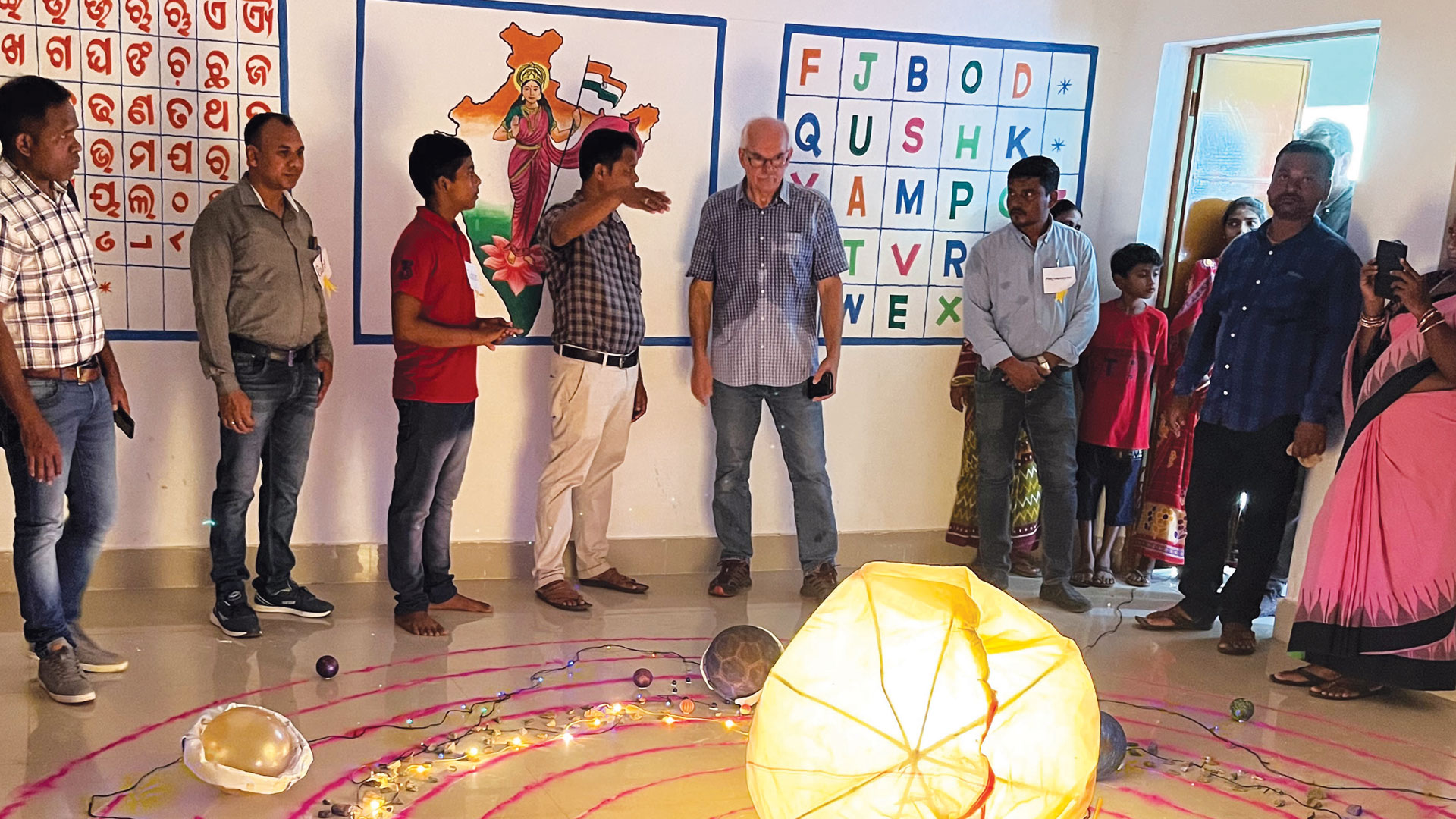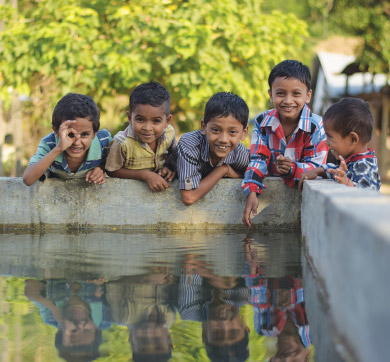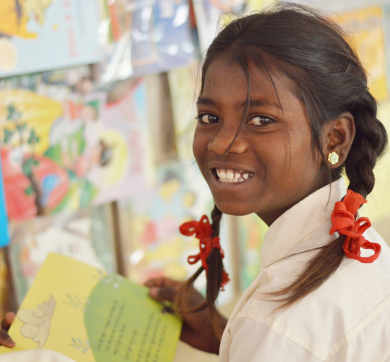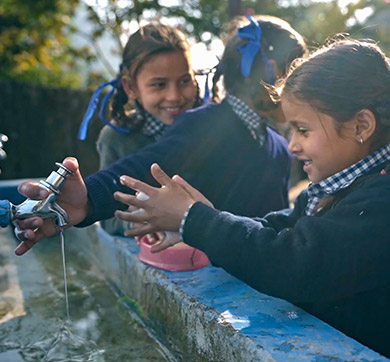March 2023 | 1611 words | 6-min read
We live in a world that is continually being remade at a faster pace than was possible a generation ago. Science, Technology, Engineering and Maths (STEM) are the building blocks that make this possible. They hold the economy together and advance the quantum of human knowledge. They help create new jobs and solve real-world problems.
Unfortunately, children often lose interest in STEM owing to indifferent teaching methods. They need to be encouraged to enjoy STEM not only for the joy of learning but also to build crucial life skills. Exposure to STEM education promotes creativity, problem solving skills and out-of-the-box thinking.
Recognising the importance of STEM education, Tata Consultancy Services (TCS), Tata Motors and Tata Steel are using innovative means to popularise STEM among children.
Technology for good
As a company whose playing field is the ever-expanding field of information technology, TCS knows the importance of enkindling an interest in STEM subjects. The company has designed go Innovate Together (goIT), a digital innovation and career readiness programme that engages with students from diverse backgrounds, particularly marginalised students. Beginning in North America, goIT has spread to 41 countries, including India, reaching over 110,000 students and generating more than 26,000 student-developed digital innovation prototypes. A total of 50 percent of the students reached were girls, 76 percent of them from marginalised minorities.
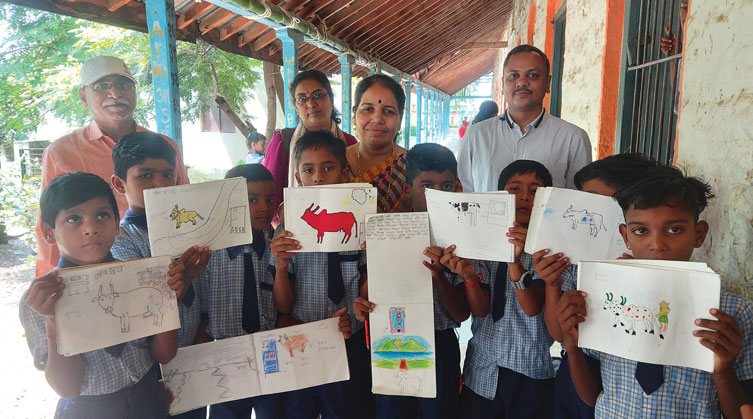
Vipul Shah, head, Education and Skilling, Global CSR, TCS, says, “We introduce students to STEM, computer science, design thinking and digital innovation. Our goal is to equip them to be problem solvers and change makers.” Participating students are asked to identify a problem in their community. Students are then trained to articulate the problem and build a prototype solution for it. TCS employees mentor the students to finetune their ideas.
One of the students developed an app to map public toilets on Google Maps, incorporating elements like cleanliness, with a star rating from users. To counter the problem of unavailability of public toilets, the student, guided by the mentor, suggested incentivising small businesses to allow the general public to use their facilities on payment of a small fee.
Mr Shah says, “The child tried to address a societal need by encouraging public participation. It shows the potential of using technology to solve the problems of the community, and to inculcate in children a sense of responsibility.” By making technology accessible to the students, TCS is also reinforcing the subtle message that everyone can use the power of technology to do good.
goIT is powered by a structured curriculum that explores topics such as innovation lifecycle, idea prototyping, and communication and collaboration through theoretical and experiential learning. TCS employees also address career-related queries.
One of the students developed an app to map public toilets on Google Maps, incorporating elements like cleanliness, with a star rating from users. The student also suggested incentivising small businesses to allow the general public to use their facilities on payment of a small fee.
To bolster the learning, the programme, in association with a client partner, throws up monthly challenges for students to solve. The goIT team identifies a problem linked to one of the 17 UN Sustainable Development Goals. Students then present their ideas to a panel of judges.
The beauty of goIT is that it does not advocate a one-size-fits-all solution. Mr Shah says, “There are different tech and non-tech pathways that can be used to find solutions to problems. Our mission is to strengthen communities today by empowering the digital innovators of tomorrow to think creatively.”
For more details, visit https://on.tcs.com/goIT100K
Motoring ahead
During the lockdown, when the world closed in upon itself, Tata Motors found a way to open up the future for over 45,000 students in rural areas. At a time when the closure of conventional schools had put the future of lakhs of students in jeopardy, the company displayed remarkable agility in launching the virtual mode of the programme within a month of the lockdown.
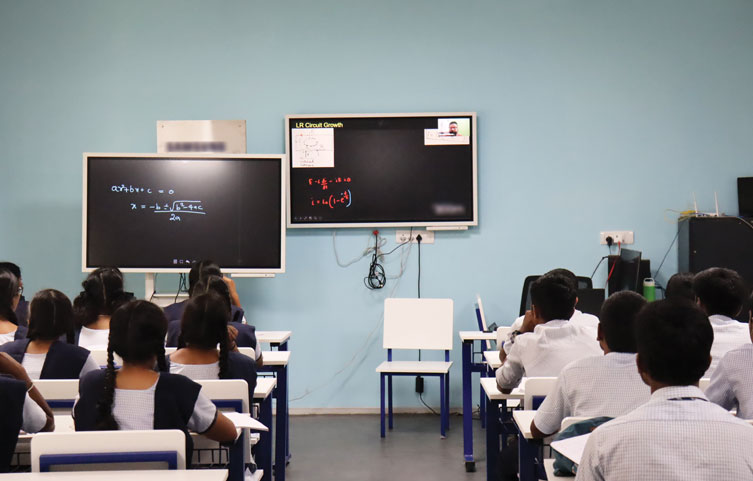
The company created the Engineering and NEET Admission Bridge Accelerated Learning Engagement initiative (ENABLE), a digitally-enabled remote learning programme that coaches Class 11 and 12 students from Jawahar Navodaya Vidyalayas (JNV) to take JEE and NEET competitive exams. The JNVs are free residential government schools, affiliated to the CBSE board, for talented students from rural India.
Describing the initiative, Vinod Kulkarni, head, CSR, Tata Motors, says, “Private coaching for entrance tests is unaffordable to these students. Tata Motors therefore collaborated with Navodaya Vidyalaya Samiti (NVS), and knowledge partners, Avanti Fellows and Ex Navodayan Foundation, to provide virtual JEE and NEET coaching to JNVs across India.” The coaching began first in Puducherry and has, since January 2021, transformed from physical to virtual, spreading to 552 JNVs across 26 states and 8 union territories.
In the last academic year, of the 10,500 students of class 12 who appeared for JEE exams, 42 percent qualified for JEE Mains and 11 percent cleared JEE Advanced.
In the last academic year, of the 10,500 students of class 12 who appeared for JEE exams, 42 percent qualified for JEE Mains and 11 percent cleared JEE Advanced. Thirty-eight percent of the latter group got into IITs. For NEET, 12 percent of the qualifying students made it to the top 10 medical institutes.
Enthused by the early success, Tata Motors has now set itself an ambitious goal. Mr Kulkarni says, “We aim to coach 1 lakh students for JEE and NEET entrances by 2025, and enroll 30,000 into institutes of higher learning.”
Tata Motors is also collaborating with NVS to create employment and employability opportunities for 1500 JNV students. The Automotive Skilling programme offers students the opportunity to acquire a diploma in manufacturing technology, on completing their Higher Secondary Certificate exams.
An Automotive Skill Lab infrastructure is being set up at 25 JNV schools, across Gujarat, Maharashtra, Karnataka, UP, Jharkhand, West Bengal, and Uttarakhand. The course curriculum, including both soft and hard skills, and lab setup have been designed as per the CBSE guidelines, with inputs from Tata Motors.
Mr Kulkarni says, “The initiative enables students to enhance their skills and immerse themselves in practical training. The industry benefits from the access to a more skilled workforce that can start with minimal training.”
The course also includes on-the-job training at a Tata Motors manufacturing facility. Those wishing to study further can avail of a 3.5-year executive Engineering programme, which Tata Motors has designed in association with select engineering colleges. On completion of five years, they may join Tata Motors as permanent employees. Diploma holders will be connected to automobile companies for internship and employment opportunities.
Beyond classroom walls
School is a pipe dream for many children trapped in a desperate bid to earn a living. For others, school, with its demands of examinations and memory games, holds little interest.
It was with a view to bringing every out-of-school child back to school, bridging their foundational learning deficit in students and ensuring relevant learning till school completion that the Tata Steel Foundation (TSF) launched the Thousand Schools programme in 2015. Since then, this overarching programme has expanded to 6000 schools in the tribal belt of Orissa and Jharkhand.
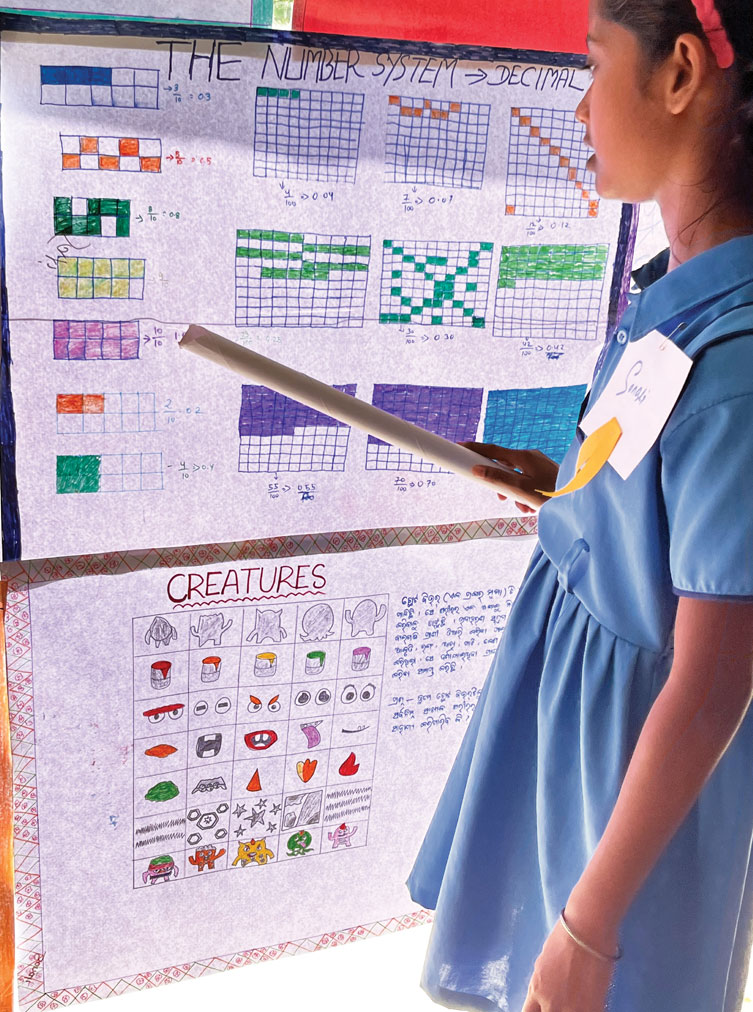
The Access Program helps school drop-outs to catch up on their basic concepts through short and long term bridge courses, before they are mainstreamed into formal schools. The Learning Enrichment Programme works with children in formal schools to make classrooms vibrant, using a research-inspired pedagogy.
Smita Agarwal, head, Education, TSF, says, “We have tried different ways to reach out to children, both in terms of pedagogy and content. We discovered that children’s learning shot up manifold once learning was organised differently.”
During the lockdown, teachers interacted with students in 20-minute stretches, in weekly cycles, to hand out creative educational tasks to about 150,000 children in over 6000 villages.
The foundation tied up with the Homi Bhabha Centre for Science Education in Mumbai to learn ways to make Science and Maths learning exciting for teachers and students alike.
During the lockdown, teachers interacted with students in 20-minute stretches, in weekly cycles, to hand out creative educational tasks to about 150,000 children in over 6000 villages. Forced to learn in a self-directed manner, the children became resourceful, using their environs and the Internet to spark off their learning. Children took the initiative to explain Covid-related hygiene to the community and registered over 16,000 people in their villages for vaccination.
Ms Agarwal says, “We created tasks related to the UN-SDG goals, biodiversity, women achievers, inventors, maps (from continents down to villages), design thinking, constructing equipment and models, and a host of other topics. Doing Origami and making platonic solids helped students to understand space and angles better.”
The Foundation also tied up with People’s Archive of Rural India, founded by award-winning journalist P Sainath, to share stories on climate change that could help the children to understand climate change in their own environment.
The team is now working with Vipul Shah of TCS to develop computational thinking skills in the children. Mr Shah regularly sends them the Bebras challenges, an international computing challenge, in which 5065 children participated.
The Foundation also tied up with People’s Archive of Rural India, founded by award-winning journalist P Sainath, to share stories on climate change that could help the children to understand climate change in their own environment.
The two years of the lockdown helped hone this offering. Ms Agarwal says, “Since there was no pressure on us to adhere to the curriculum, we could do a lot of experimentation. We took learning outside the four walls of the classroom, and went beyond the curriculum to talk about diversity, human rights, local history, news events like Olympics, extreme weather events, Nobel prizes, etc. The task series on inventors got children enthused to take up Science and Maths.”
Another collaboration with the University of Turku, Finland, involves bringing the best of Finnish learning elements into rural schools through contextualisation and adaptation, and making learning future-oriented through the use of gamification, videos, apps and platforms. Suddenly the whole world is a classroom, perpetuating the mindset required to help children see Science, Maths and Technology as exciting.
English poet WB Yeats once said, “Education is not the filling of a pail, but the lighting of a fire.” With their efforts, TCS, Tata Motors and Tata Steel are successfully using STEM to light the fire for the next generation.
- Cynthia Rodrigues




